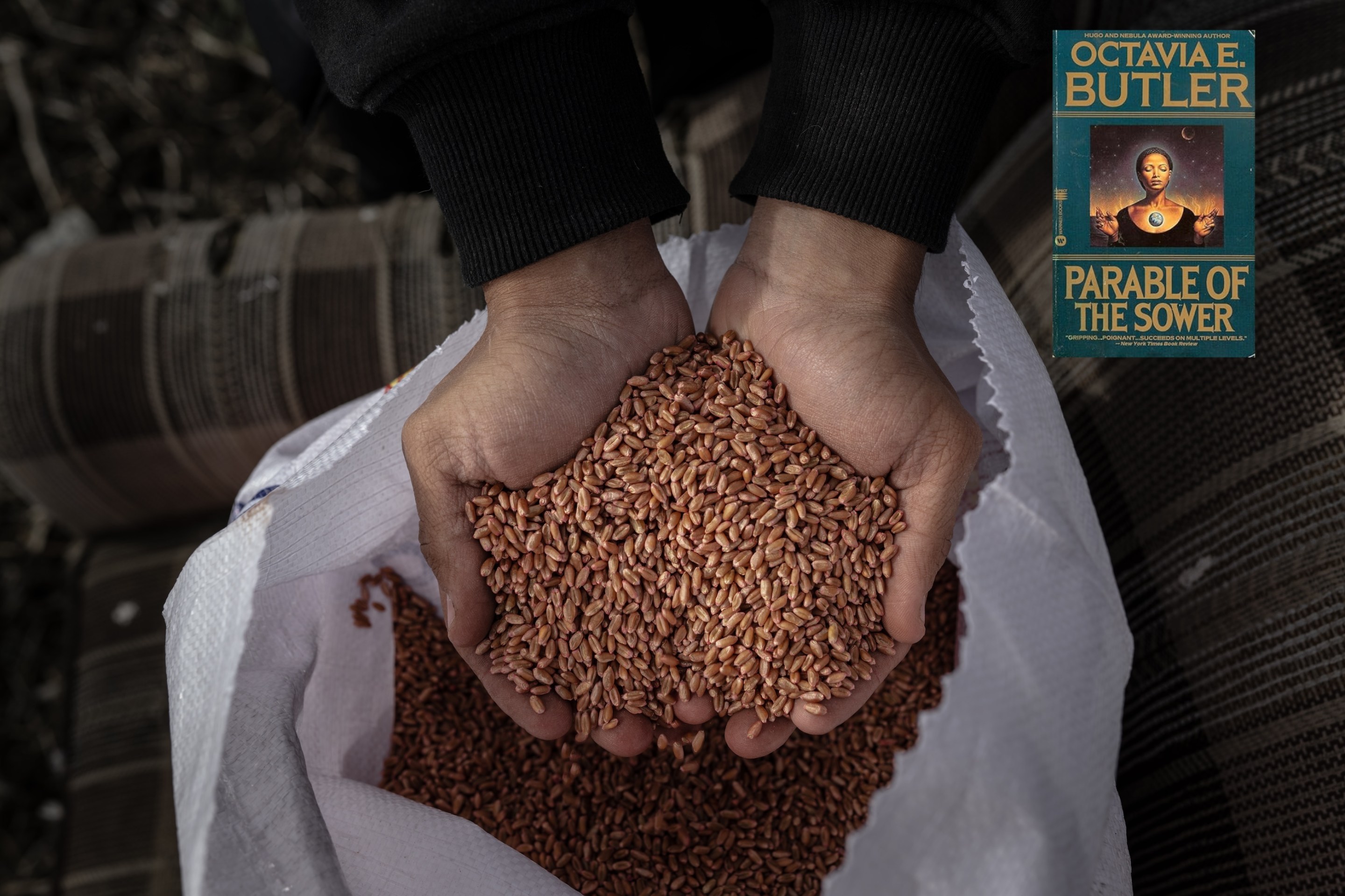In 1992, while Octavia E. Butler was writing her novel Parable of the Sower, Los Angeles was hitting bottom. The acquittal of the police officers filmed brutalizing Rodney King triggered a paroxysm of riots and violence in the city. To Butler and many others, it felt like the apotheosis of a number of untenable realities. As a writer of science fiction, Butler took the anxieties she felt—about social rot and political atrophy, about a vision of capitalism poised somewhere between merely dehumanizing and actively anti-human, about climate collapse and social collapse—and turned them into a story that was both more speculative and more full of possibility than the news. Parable of the Sower, which was published in 1993, begins in the year 2024.
The book tells the story of Lauren Oya Olamina, a brilliant and supernaturally sensitive 15-year-old growing up in a town that sits on the outskirts of a collapsing Los Angeles, and in every way on the verge of a deep abyss. Her experience of the dying world around her fuels a vision of a new faith, called Earthseed; when circumstances force Lauren out into that world, she and that faith are tested over and over again as she and a collection of fellow travelers look for safety in a very dangerous country. It's not any more uplifting or much less harrowing than it sounds—I haven't finished reading it yet, but I'm not expecting a big comeback for Society—and the many ways in which it has proved prescient do not make it any easier to take. But it did give the book, which was well-reviewed in its time and became a cornerstone of Butler's legacy, a long and uneasy second life. In the fall of 2020, at what felt like the bottom of the pandemic, 27 years after it was first published, and 14 years after Butler's death, Parable of the Sower became a New York Times bestseller.
"Because Butler is interested in how people might retain their humanity and direction through conditions of extreme chaos and change," Rebecca Onion wrote in Slate in September of 2020, "the Earthseed books are instructional in a way that other apocalypse fictions are not." It is not great when a piece of extra-dark sci-fi that could also be described as "apocalypse fiction" continues to increase in prescience for this many years in a row; it is furthermore pretty unsettling to be reading a book about cruelty and social collapse, set in the near future, from something increasingly like the very future the author chose. But, the DRAB Squad agreed, that was no reason not to give Parable of the Sower a shot.
Some of us have read it before and revere it; some of us have meant to read it for some time but were, for reasons mentioned in the previous paragraph, reluctant to give it a shot. But we will be talking about it the week of February 23, and will be putting up a post on the 26th. We'll drop a reminder in the Cipher (subscribe here if you haven't already) and that will also be in the Defector Programming widget on the website. And if you want a reminder about our DRAB programming, you can use the form below.






